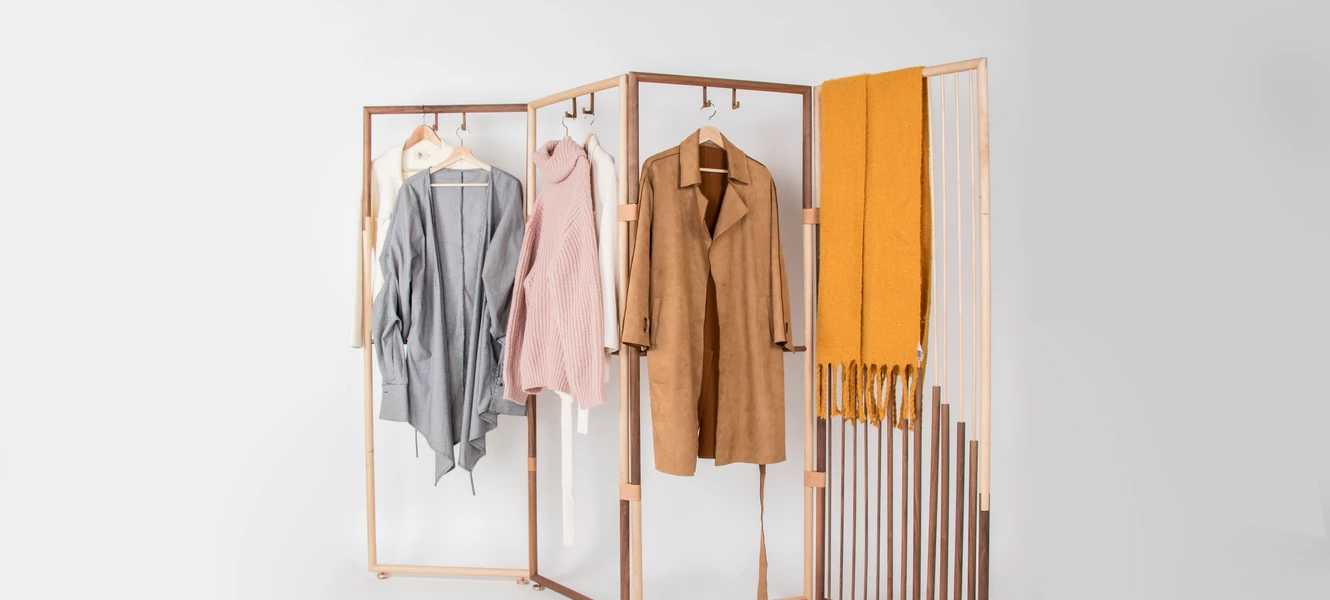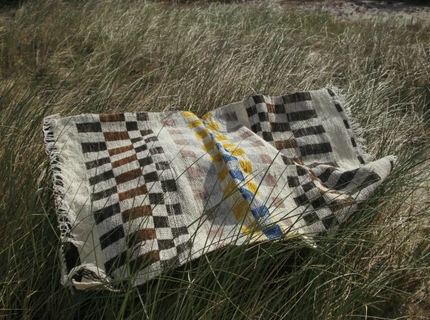
The Folding Screen for a Fragmented Modern Life
In his bid for a piece of furniture for the modern design scene, Po Chung Chen has found inspiration in classical Danish furniture designs such as the Y Chair.
With its mixture of Buddhist temples, classical East Asian architecture, towering skyscrapers and a rumbling industrial port, Kaoshiung, the second largest city in Taiwan, is close to the prototype of an Asian metropolis. Here tradition and modernity thrive side by side – or perhaps one should rather say shoulder to shoulder, because, like in so many of the world's other growing cities, the population density is extremely high.
Single-life on a few square meters
People in Kaoshiung live about three times as close as in Copenhagen, and in the competitive society with working weeks of 60–70 hours, few have time to find a partner, so more than half of the residents are single. The price per square meter is astronomical and meals are mostly consumed in the city; hence the average residence in Kaoshiung is 14 square meters. That is the reality Po Chung Chen comes from and the reality he designs for. But the design is just as relevant in other metropolitan areas of the world, where single-life and small-scale homes are prevalent trends.
Past and present in wood
Po Chung Chen has just completed his education as an industrial designer at Kolding School of Design with the design of a folding screen that matches the needs of modern people. Made entirely of the natural materials, maple and walnut, the screen combines traditional Taiwanese craftsmanship with inspiration from Danish design classics. The design is minimalist, light and airy, and the choice of natural materials also applies to all joints in the furniture. The technique, however, is based on traditional craftsmanship, where precisely the wooden joints deliver the flexibility needed in an earthquake-ravaged region.
“I walked the streets of Kaoshiung and looked at the selection of furniture. Either it was IKEA-like design, where the craft has gone to the dogs at the expense of mass production. Or it was classic Taiwanese pieces – constructed with great craftsmanship – but they were heavy and outdated. That inspired me to create a piece of furniture that represents our identity, culture and life, but in a contemporary expression,” he says.
Wardrobe and lifestyle indicator
The obvious function of the folding screen is as a flexible space divider in a microscopic home. But it is much more than that. The frame also functions as a kind of wardrobe, where the owner can select precisely the sets of clothes that are currently in use or the absolute favorite outfit. Thus, the screen becomes a kind of personal canvas, where the owner can express his or her personal identity and style, and where the screen is transformed into the most important and unique decorative object in the home.
“We use clothes to decorate ourselves and express our style, but why should we just throw them in the closet when we are at home? When you hang your clothes on my screen, you can draw exactly the picture of yourself that you want. Are you a cool business suit type? Are your clothes graphic and tight? Wild and colourful? Funky streetwear? Or do you need a mannequin to test which clothes go well together? ” Po Chung asks.
The complementary halves
The name of the design project is ‘50%’, meaning one half. Po Chung explains, “The concept of ‘50%‘ captures many of the dimensions in my project. More than half of us are single – and most of us are searching for our future ‘better half’. You buy the screen – but it is only 50% finished, because you make it complete with the addition of your own clothes. The screen symbolises half modernity, half traditionality, and then it’s also a somewhat ironic comment hinting at the fact that we often only use half of the clothes we own,” he says.
Finally, the screen also brings together Taiwanese and Danish elements in one piece of furniture:
“My absolute favourite chair is one of the prototypes of the classic Y Chair and, in fact, I have found several similarities between that and the shape of some classic Taiwanese chairs that just don’t have the same lightness. I have asked myself what makes a piece of furniture become a classic, and my training at Kolding School of Design has forced me to think beyond production and efficiency and look at what really constitutes good design. With ‘50%’ I hope I can offer a modern classic in Taiwan.”
Collaboration partner: Hands / Jin Ting Kao (production)
“Po Chung Chen’s folding screen combines classic, traditional Taiwanese craftsmanship with the needs of the modern individual. The folding screen functions as a room divider, a clothers rail and a piece of art, since the owner chooses which clothes to display on the piece of furniture. The choice of clothes becomes part of the artwork and an expression of the owner’s personal identity.”


